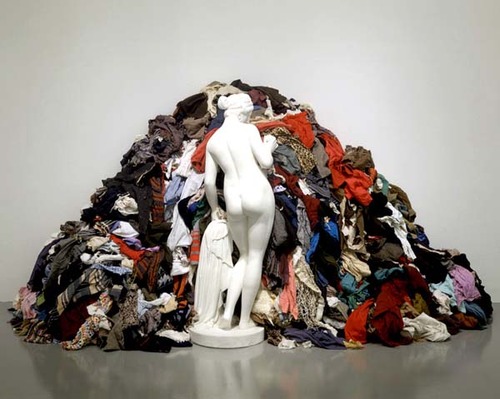We came, we cleaned, we conquered. This weekend our small group, armed with Clorox and Windex, stormed the church, leaving no cranny unclean. For a few months now, we’ve brainstormed ways to become more engaged members of the congregation, and adding our names to the cleaning rotation seemed a good place to start. Saturday was our inaugural cleaning day. Top to bottom we mopped, vacuumed, dusted and disinfected, and by the end, the whole place sparkled. It smelled of artificial pine—the mark of true hygienic success.
As the cleaning spree concluded and we prepared to lock up, the group gathered near the exit, where throughout the morning we’d heaped our trash and filthy rags. Steve, a good friend of mine (and master of analogies), pointed to the pile, then looked at me: “That’s what your good works look like to God.”
Buuurn.
In fairness, the Bible said it first (Isaiah 64:6). We all had a good laugh, because the last thing we expected on cleaning day was an impromptu mini-sermon. Looking at the fruits of our labors, it would’ve been easy to think, “See what I’ve done for God. How kind of me to serve him and our congregation in such a way. On a Saturday morning, at that!” But God reminds us, sometimes in surprising ways, that apart from faith in Christ and his finished work, our good deeds look a lot like those leftover linens.
Theology is everywhere! Even in those dirt-encrusted, poo-speckled, funk-infused rags. And if that’s a picture of our good works, what must our evil works look like? We all agreed that, as a metaphor for sin, those rags on the church floor weren’t nearly nasty enough. You could still see swaths of white beneath the grime. Some still smelled lemony fresh. We’d need to do lot more scrubbing to get those rags looking rotten enough.
Those crazy Christians, some might think. Aren’t they being a little hard on themselves, comparing their good works to filthy rags?
Well, Paul steps it up a notch. He says deeds done apart from the knowledge and love of Christ are pretty much flaming piles of crap (Philippians 3:8). The actual poo on the rag! Of all people, Paul had an impressive list of religious accomplishments, yet he considered it all loss compared to Christ. He’d rather “be found in him, not having a righteousness of my own that comes from the law, but that which comes through faith in Christ, the righteousness from God that depends on faith” (3:9).
That’s the beauty of Christianity. We’re free to say, “I’m dirty.” But we don’t stop there. Thankfully, God’s on a cleaning schedule, too. When we look to Christ as our righteousness, trusting in his completed work on the cross, he declares us clean, free, forgiven. Yes, those filthy rags become pure-white garments—but not before being washed in blood.





Leave a Reply
Your email is safe with us.